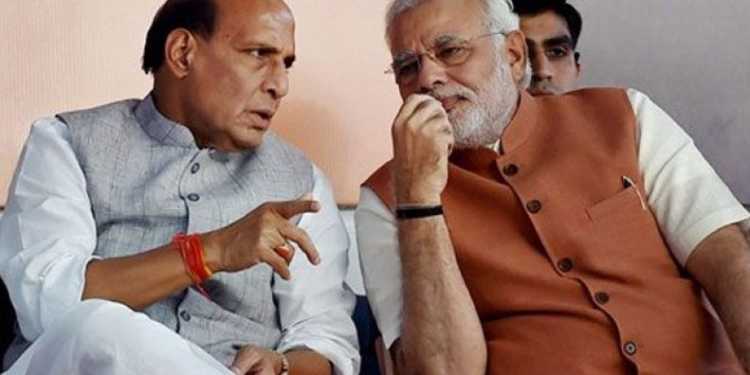Violence in Jammu and Kashmir has not abated over the past month despite the Central government’s decision for conditional unilateral ceasefire in Kashmir. The decision to implement a unilateral ceasefire was taken after Jammu and Kashmir CM Mehbooba Mufti asked the central government to halt anti-militancy operations during the holy month of Ramzan. The catastrophic and self harming move was passed on to the Indian Army and other security forces working in the valley. Following which they were not allowed to initiate actions against terrorists. It was probably aimed at winning the hearts of the people from the Muslim dominated Kashmir valley areas but it backfired almost instantly.
The security forces had built up a significant momentum in the past few months and had neutralised many threats both at the international border and inside Kashmir. The terrorists made their stand clear within a few hours of this move being announced by opening fire at an army patrol in Shopian district of Kashmir. They showed that the Indian government’s decision to bring some peace to the valley did not matter to them. Terrorists took the ceasefire as an opportunity to regroup and strategically target the security forces in Kashmir.
The devastating impact of the unilateral ceasefire can be ascertained from the fact that the emboldened terrorists carried out 42 incidents in just three weeks beginning from May 17 while they had only succeeded in committing 55 incidents from January till the 17th of May. 17th May is the date when the Indian government implemented the conditional ceasefire for a month long period. The period of the ceasefire is going to end in four days from today and the government of India should not extend this ceasefire by any means.
Terrorists have shown time and again that they do not understand the language of peace. Their brainwashing leads them to think that even a ceasefire is an opportunity to hurt India and Indian security forces. Pakistan, on the other hand, too has not stopped giving support to the infiltrators who are desperately trying to enter Kashmir. 22 infiltrators have been killed at the international border in the past few days but security officials are afraid that the same number or probably more have succeeded in crossing over. The anti-infiltration dragnet works in combination with Cordon and Search Operations (CASO) and Search and Destroy Operations (SADO) which takes place inside the Kashmir valley. Security forces’ hands have been tied down owing to the ceasefire and it has given the infiltrators and terrorists a breather. These terrorists are roaming free inside Jammu and Kashmir and could strike anywhere. Jaish-e-Mohammad has carried out 19 grenade attacks within the past 15 days while more than 50 incidents of stone pelting have been reported from South Kashmir in the same time frame.
These alarming incidents suggest that peace in the valley can be restored only when the extremist elements are eliminated or there is reciprocity for peace initiatives. The terrorists and infiltrators with their separatist and Jihadi mindsets can never be trusted to bring peace in the Kashmir valley. The government should immediately brush off any thoughts of extending this ceasefire and restore the balance in favour of the security forces. The terrorists have got too much of a breather in this month long ceasefire which is going to end after Eid. Any future thoughts of implementing these measures should be immediately quashed as we have seen how the terrorists behave when they get a chance to come out in the open. Extending the ceasefire would also mean that the Amarnath Yatra which is scheduled to start from June 28 will face serious security threats. The terrorists will try to kill pilgrims and the security force members during the course of the yatra. A terrifying story could play out in the days to come if Mehbooba Mufti and the central government refuse to learn their lesson from the happenings of these past few weeks.




























